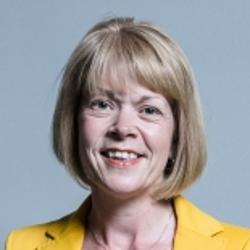Antimicrobials: Drug Resistance
(asked on 25th April 2025) - View SourceQuestion to the Department of Health and Social Care:
To ask the Secretary of State for Health and Social Care, what assessment he has made of the potential impact of repatriating patients with antimicrobial resistance from conflict zones on (a) UK citizens and (b) the NHS.
The Department recognises conflict as a major driver of antimicrobial resistance (AMR), posing significant risks to populations in fragile and conflict-affected states, the wider global community, and the United Kingdom. In response, the Department of Health and Social Care is working closely with the Foreign, Commonwealth and Development Office to raise global awareness and understanding of this growing threat. The Government does not routinely repatriate patients from conflict zones, and where these have taken place, it has been under exceptional circumstances, or at the individual's expense to reduce avoidable burdens on UK taxpayers.
Evidence indicates that inward migration from countries with a high prevalence of AMR is likely contributing to the rising AMR burden in the UK, which includes the risk of multidrug-resistant (MDR) tuberculosis (TB). To address this risk, there is a UK pre-entry screening programme for migrants coming for more than six months from countries with high incidence of TB. This will include countries with high incidence of MDR disease. Further information on the evidence is available at the following link:
https://pmc.ncbi.nlm.nih.gov/articles/PMC6032478/
The UK Health Security Agency does not currently undertake routine surveillance of AMR specifically in patients repatriated from conflict zones, but remains committed to strengthening surveillance of drug-resistant infections more broadly regardless of source, to ensure early detection and to enable a rapid response to emerging threats
The National Health Service is a residency-based system, which means that people who do not live here on a lawful, settled basis must contribute to the cost of their care. However, some of the most vulnerable people arriving in the UK, including refugees and some asylum seekers, do not pay for NHS treatment.

